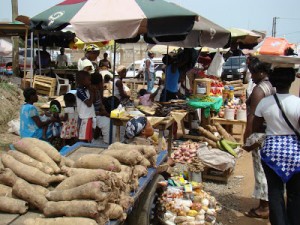Experts to examine ECA’s country profiles for economic transformation
 The country profiles of the UN Economic Commission for Africa (ECA) as tools for the economic diagnosis and transformation of African countries, will be the main subject at the 19th session of the Intergovernmental Committee of Experts (ICE) for West Africa.
The country profiles of the UN Economic Commission for Africa (ECA) as tools for the economic diagnosis and transformation of African countries, will be the main subject at the 19th session of the Intergovernmental Committee of Experts (ICE) for West Africa.
According to a statement by the ECA, the theme for the 19th session, to be held in Dakar, Senegal from February 25 to 26, 2016 under the auspices of the West African sub-regional office of the ECA, the Senegalese Government and the Regional Economic Communities, is “The Country Profiles of the ECA: tools in the service of the structural transformation of West African countries.”
In contrast to other profiles the Economic Commission for Africa says its country profiles aim at rather “providing each African country with an objective analysis of its economic and social situation, supported by a certain number of global indicators, notably the African Social Development Index (ASDI), African Gender and Development Index (AGDI) and the Regional Integration Index (RII).”
The ECA’s country profiles it says, could also serve as a source of comparative data compliant with international standards, to meet the needs of academics, investors, analysts and civil society.
It is in light of the above that the ECA’s West Africa sub-regional office wants to convene delegates of member countries and enlighten them on the features of the ECA’s country profiles and how to utilize them.
The main objective of the ICE’s 19th session, is “to debate recent developments that could impact the economic and social development of West African countries, in order to identify the main challenges to be met and to make recommendations to accelerate the growth and the economic transformation of the sub-region.”
Delegates and experts are expected from 15 West African member states, the Economic Community of West African States (ECOWAS), the West African Economic and Monetary Union (WAEMU), the Mano River Union (MRU), UN agencies, intergovernmental and non-governmental organizations, the African Development Bank (AfDB) and other financial institutions and development partners in West Africa.
The participants will also analyse the recurrent report on the implementation of regional and international agendas, which this year is centred on the transition between the Millennium Development Goals (MDGs) achieved in 2015 and the Sustainable Development Goals (SDGs) adopted under the auspices of the United Nations in September 2015.
By Emmanuel Odonkor
